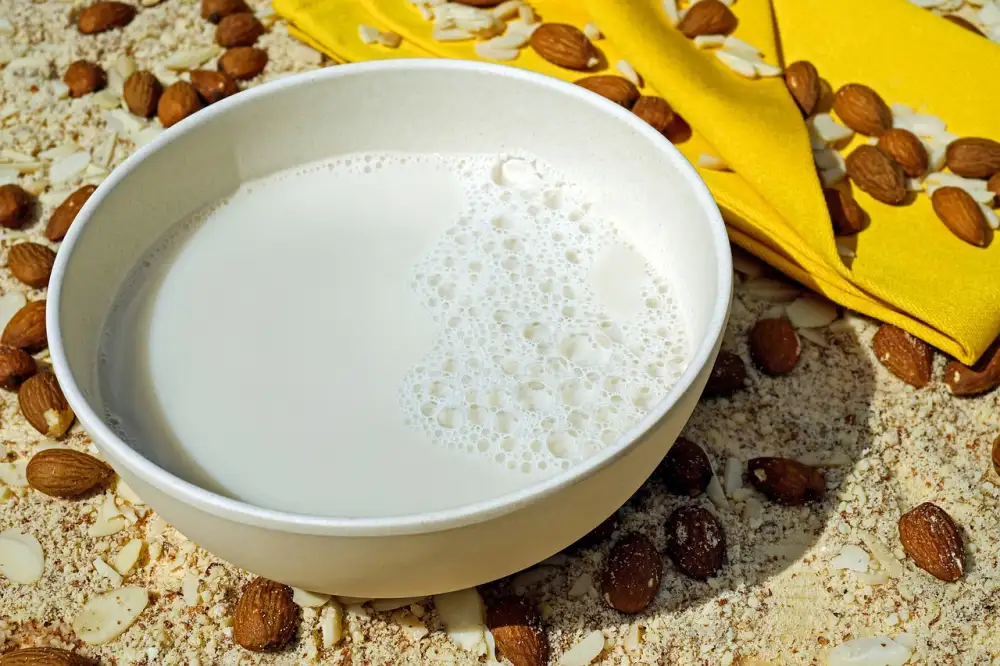Unveiling the Truth: Does Almond Milk Go Bad? Your Guide to Shelf Life and Spoilage Signs

Almond milk has gained popularity as a dairy-free alternative to traditional cow's milk. But just like any other perishable product, almond milk also has a limited shelf life. As a consumer, it is important to understand how long almond milk lasts and how to identify signs of spoilage. By knowing these factors, you can ensure that you enjoy fresh and safe almond milk every time you pour yourself a glass or use it in your favorite recipes. So let's dive into the world of almond milk and uncover the truth about its shelf life!
How Long Does Almond Milk Last?
The shelf life of almond milk varies depending on various factors. Typically, an unopened carton of almond milk can last up to a week past its expiration date when stored in the refrigerator. However, it is important to note that this is just a general guideline and the freshness may vary between brands.
Once opened, almond milk should be consumed within 7-10 days for optimal taste and quality. It is crucial to check the expiration date on the carton before consuming it. Additionally, homemade almond milk has a shorter shelf life and should be consumed within 3-4 days.
To ensure you are enjoying fresh almond milk, it is best to follow the storage guidelines provided by the manufacturer and use your senses to determine if it has gone bad.
Factors Affecting the Shelf Life of Almond Milk
Several factors can affect the shelf life of almond milk. One of the most significant factors is the packaging. Almond milk that comes in aseptic packaging, such as cartons or Tetra Paks, tends to have a longer shelf life compared to those in plastic bottles.
Another factor is the temperature at which almond milk is stored. It is essential to keep almond milk refrigerated at all times. Exposure to high temperatures can accelerate spoilage and reduce its shelf life significantly.
The presence of additives and preservatives also plays a role in determining how long almond milk can last. Some brands may add stabilizers and preservatives to extend its shelf life, while others may opt for a more natural approach without additives.
Lastly, the freshness of the almonds used in making almond milk can impact its shelf life. If almonds are not fresh or have been stored improperly before processing, it can affect the quality and longevity of the final product.
By considering these factors, you can better understand how long your almond milk will last and take appropriate measures to ensure its freshness for as long as possible.
Signs of Spoilage in Almond Milk
It is important to be able to identify when almond milk has gone bad. The first sign to look out for is a change in smell. If the almond milk smells sour or off, it is likely spoiled and should be discarded. Another indicator of spoilage is a change in texture. If the almond milk becomes chunky or lumpy, it has most likely gone bad. Additionally, any signs of mold growth on the surface of the almond milk are a clear indication that it should not be consumed. It is always better to err on the side of caution and discard any almond milk that shows these signs of spoilage to ensure your safety and enjoyment.
Proper Storage Tips for Extending the Shelf Life of Almond Milk
Proper storage is essential for extending the shelf life of almond milk. Here are some tips to help you keep your almond milk fresh for longer:
1. Refrigerate promptly: After opening the almond milk, make sure to refrigerate it immediately. The cold temperature will slow down the growth of bacteria and preserve its freshness.
2. Use airtight containers: Transfer any leftover almond milk into a clean, airtight container before storing it in the refrigerator. This will prevent any odors or flavors from contaminating the milk and help maintain its quality.
3. Avoid cross-contamination: Be cautious not to mix your almond milk with other liquids or foods in the refrigerator. Cross-contamination can introduce bacteria and spoil the milk faster.
4. Check for spoilage regularly: Keep an eye on your almond milk and check for any signs of spoilage, such as off smells, curdling, or unusual texture. If you notice any of these signs, discard the milk immediately.
5. Don't leave it out at room temperature: Almond milk should not be left at room temperature for an extended period as it can promote bacterial growth and shorten its shelf life. Always return it to the refrigerator after use.
By following these storage tips, you can enjoy fresh and safe almond milk for a longer duration, ensuring that each glass remains delicious and nutritious until the last drop!
In conclusion, it is important to understand the shelf life of almond milk in order to enjoy it fresh and safe. Almond milk can last up to a week past its expiration date if stored properly. However, factors such as temperature, exposure to light, and contamination can affect its shelf life. To ensure the freshness of your almond milk, always check for signs of spoilage before consuming. Remember to store it in a cool and dark place, tightly sealed. By following these guidelines, you can savor the delicious taste of almond milk while keeping yourself healthy and safe.
Published: 11. 12. 2023
Category: Health



